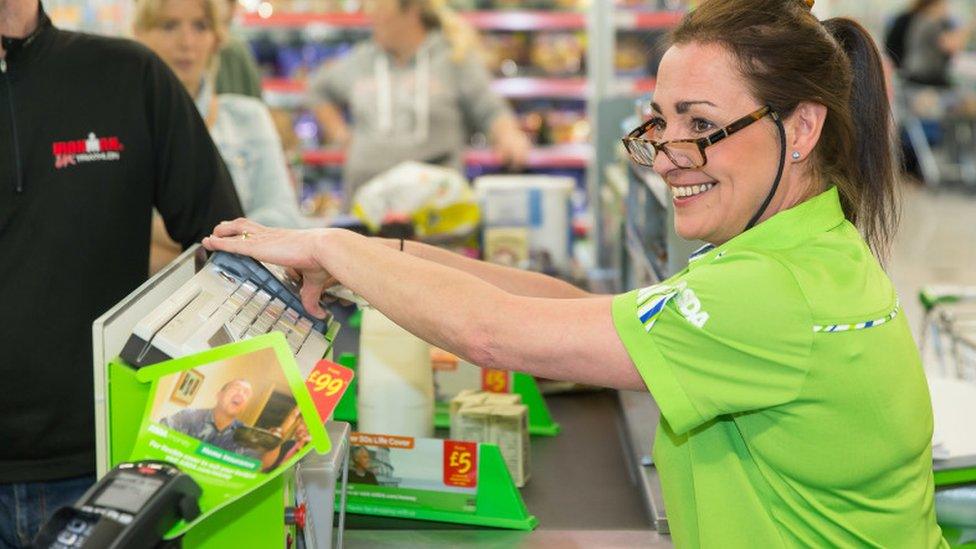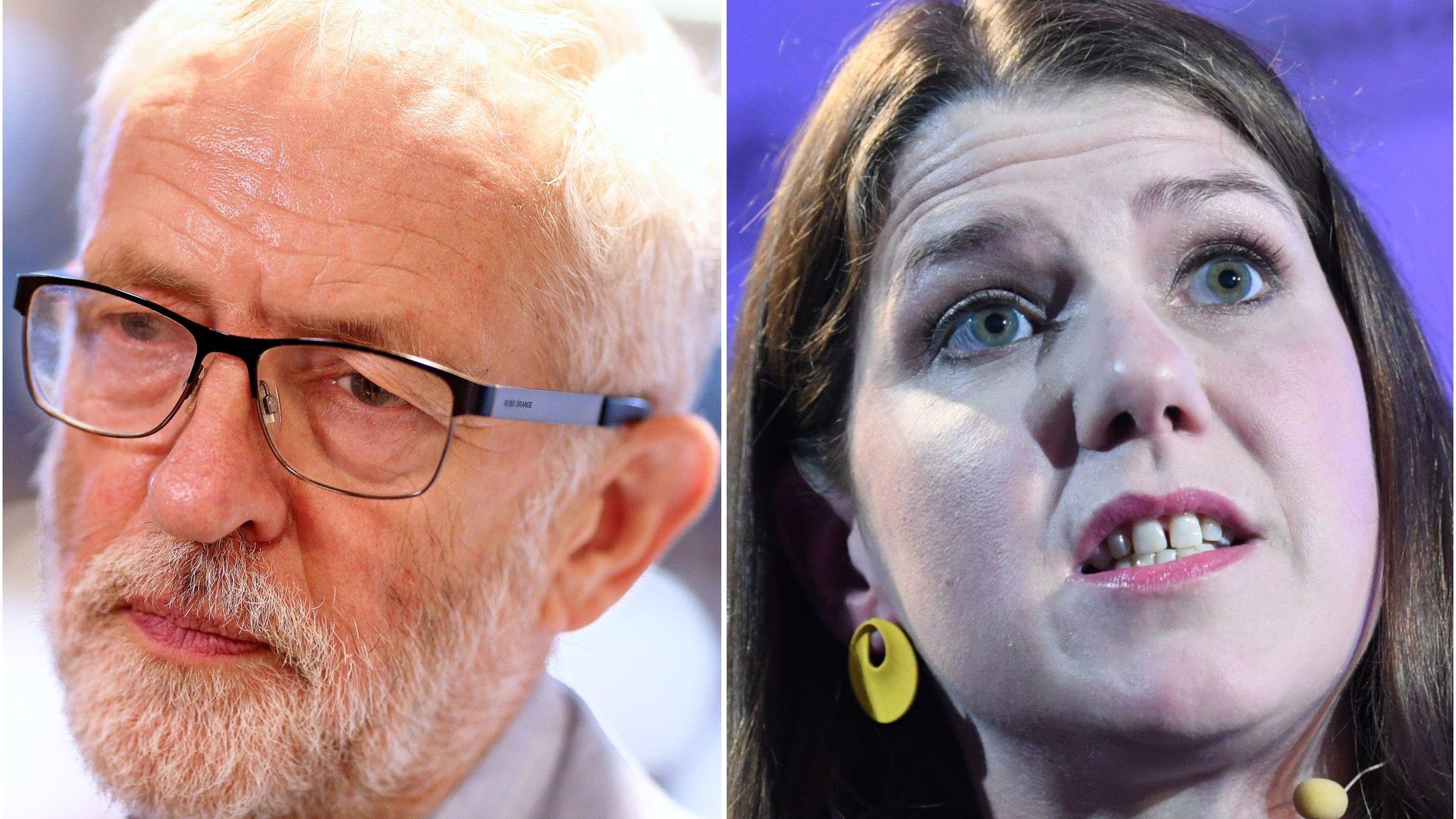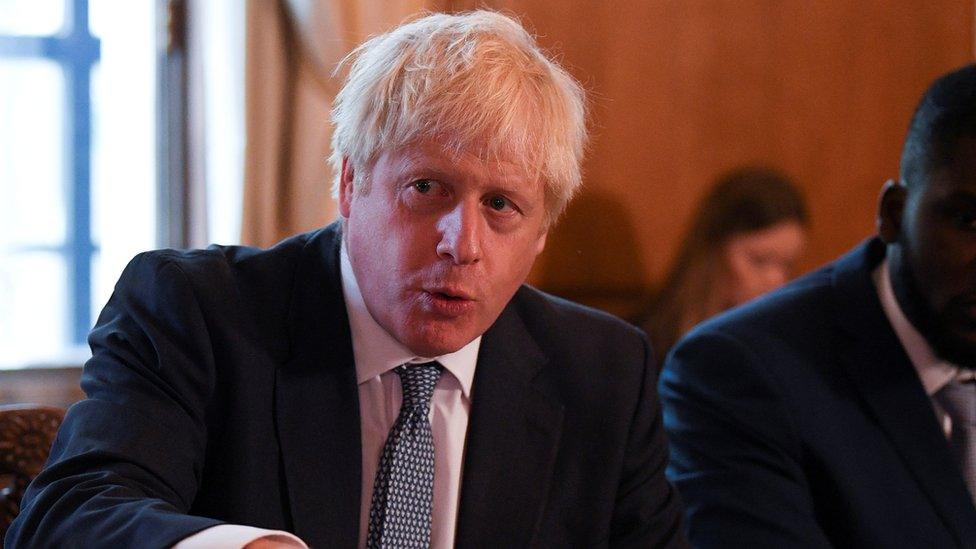Has Brexit stopped us spending?
- Published

Richard and Emma Ward have postponed a short holiday this year due to concerns about Brexit and the pound.
As the uncertainty around Brexit continues, some people are putting spending plans on hold, or at least that's what a KPMG survey suggests.
Almost a third have changed their spending habits due to Brexit uncertainty, and almost a quarter have put off major purchases, KPMG found.
But Office for National Statistics figures shows the situation may be rosier than some consumers think.
Monthly retail sales rose 0.2% in August, defying forecasts for a fall.
The performance was boosted by online sales.
And department store sales rose 1.6%, reversing their decline through sales of clothes.
Nevertheless, some people say they are putting spending on hold.
Richard Ward, a 29-year-old project manager from Leicester and his wife Emma, a children's nurse, put off booking a short holiday to Poland or Hungary due to Brexit being postponed.
They were concerned about the pound dropping while they are away, and the holiday becoming more expensive.
'No-one knows'
"We were thinking about going within the next month. We've put it off," he said. "When the referendum result came in, the pound crashed against the euro. We worried that would happen again."
Mr Ward works in the construction industry. The company he works for, which imports goods from Europe, has already raised prices due to the drop in the pound.
He is concerned a no-deal Brexit will lead to queues of lorries at Dover, disrupting his firm's work.
"If we get a deal, I don't think too much will change. I don't see that happening," he said.
"The reality of the situation is no-one knows what will happen if we leave [the EU] without a deal."
'Cautious'
Paula Smith, head of banking at KPMG UK, said: "It is clear people are uncertain about the future, spending and investing less while saving more.
"However, while people work to protect their finances from Brexit uncertainties, interest rates remain stubbornly low, so savings aren't really working for people.
"The business world has been cautious about investing for growth since the referendum and that's clearly playing through into the real economy and people's financial confidence."
But according to the ONS, there is some buoyancy in consumer spending.
In the three months to July 2019, sales increased by 0.5% when compared with the previous three months, with food stores and fuel stores seeing a decline.
That is the lowest increase this year.
Rhian Murphy, head of retail sales at the ONS, said: "Retail sales saw only modest growth in the last three months,
"Although still declining across the quarter, there was an increase in sales for department stores in July for the first time this year.
"Strong online sales growth on the month was driven by promotions."
Samuel Tombs, chief UK economist at Pantheon Macroeconomics, said that over the year "it's been a picture of relatively slow growth" in consumer spending.
"Partly, that reflects uncertainty over the Brexit process," he said.
Spending is still growing in real terms, but employment growth has been slow.
"The main bright spot has been to see wages grow at a decent rate," he added.
Emma Wall, head of investment analysis at Hargreaves Lansdown, agreed that wages growth had been positive. Wages growth hit an 11-year-high in June.
"If people are getting paid more, they tend to spend more," she said.
But she said there had been muted consumer spending growth over the year.
People had tended to hold off spending on big ticket items such as cars, in part due to uncertainty.
However, she cautioned that car spending had also been affected by factors such as concern over government plans to ban new diesel cars from 2040.
Correction 30th January 2020: This article has been rewritten following a complaint to the BBC's Executive Complaints Unit.
- Published15 August 2019

- Published15 August 2019

- Published14 August 2019
